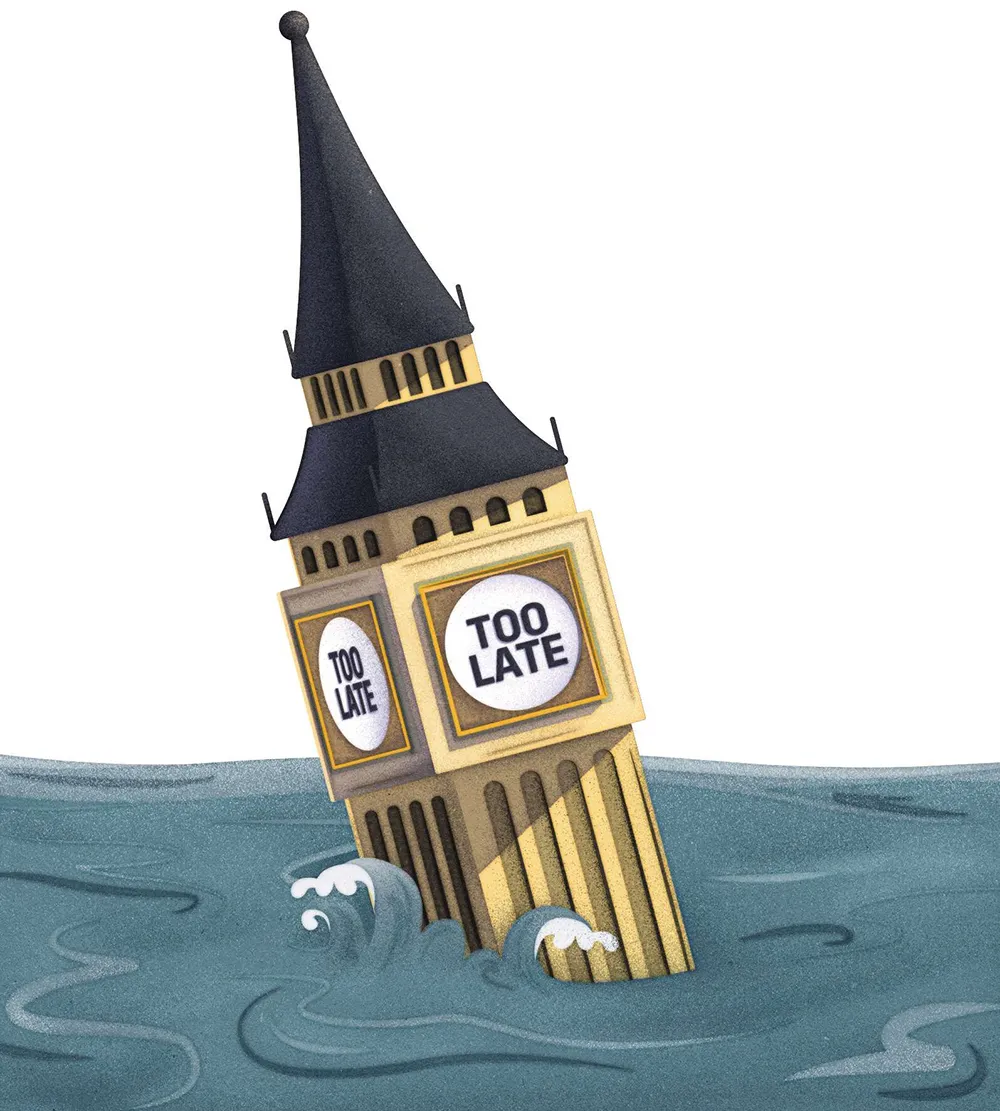Climate change is already impacting extreme weather events around the world, from heatwaves to hurricanes, and this impact is expected to grow as more warming gases are added to the atmosphere.
We need to cut yearly global emissions roughly in half by 2030 compared to 2010 levels to stay on track to limit temperature rise to 1.5°C above pre-industrial levels, but current Paris climate pledges put us on track for emissions to be 16 per cent higher in 2030 than in 2010.
As Sir David Attenborough said in 2021:
No matter what we do now, it’s too late to avoid climate change.
Sir David Attenborough
So we will need to adapt to it to some extent.
However, we still have plenty of scope to limit the worst impacts. Since the Paris Agreement was signed in 2016, there has been a strong shift in climate ambition. Renewables have fallen massively in price and climate change has shot up political agendas.

While the latest round of Paris climate pledges this past year still fall well short, they are an improvement on pledges five years ago: they put the world on track for a 2.4°C rise by the end of the century, rather than 2.7°C. We also know we have a plethora of existing climate solutions which can rapidly cut emissions, if only we choose to use them.
And it will never be too late to stop climate change because it will always be better to keep temperature rises as low as possible. Limiting it to 2°C is better than 2.5°C, but better than both of these is keeping it below 1.5°C.
Read more:
- Will increased Sun activity make climate change worse?
- Do we really know what climate change will do to our planet?
- Could climate change turn Earth into Venus?
- Have we made any difference to climate change yet?
To submit your questions email us at questions@sciencefocus.com (don't forget to include your name and location)
- This article first appeared inissue 371ofBBC Science Focus Magazine–find out how to subscribe here




